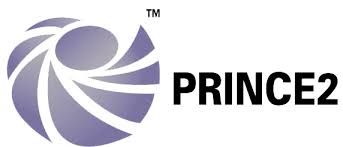
Digital Marketing for NGOs
Course ID: 2502030107750ESH
Course Dates : 03/02/25 Course Duration : 5 Studying Day/s Course Location: London, UK
Language: Bilingual
Course Category: NGO Programmes
Course Subcategories: Digital Marketing and Communications
Course Certified By: ESHub CPD & LondonUni - Executive Management Training
* Professional Training and CPD Programs
Certification Will Be Issued From :
From London, United Kingdom
Course Fees: £5,120.30
Vat Not Included in the price. VAT may vary depending on the country where the course or workshop is held.
Click to Pay
Date has passed please contact us Sales@e-s-hub.com
Course Information
Introduction
Non-governmental organizations (NGOs) operate in an increasingly digital-first world where visibility, engagement, and resource mobilization are critical to their success. The advent of digital platforms has revolutionized the way organizations communicate with stakeholders, advocate for causes, and raise funds. However, many NGOs face significant challenges in leveraging these tools effectively due to limited resources, expertise, or strategic frameworks. This course, "Digital Marketing for NGOs," addresses these gaps by equipping participants with the knowledge and skills needed to harness digital marketing strategies that align with organizational goals.
The importance of digital marketing for NGOs cannot be overstated. According to a 2022 report by Nonprofit Tech for Good, over 70% of donors research organizations online before contributing, underscoring the need for a robust digital presence. Yet, many NGOs struggle with outdated websites, inconsistent social media strategies, or ineffective email campaigns. These inefficiencies not only hinder outreach but also undermine trust and credibility. By integrating established theories such as the Diffusion of Innovations and the AIDA (Attention, Interest, Desire, Action) model, this course provides a structured approach to overcoming these barriers.
One notable example is Charity: Water, a nonprofit that has successfully utilized storytelling through digital channels to engage millions of supporters worldwide. Their use of compelling visuals, targeted ads, and data-driven content demonstrates how strategic digital marketing can amplify impact. Similarly, smaller NGOs like local community health initiatives often lack the capacity to replicate such successes. This course bridges that gap by offering practical insights and actionable strategies tailored to NGOs of varying sizes and capacities.
Participants will explore the intersection of technology and social impact, learning how to craft campaigns that resonate with diverse audiences while adhering to ethical standards. The course delves into key areas such as audience segmentation, search engine optimization (SEO), social media advertising, and analytics, all grounded in real-world applications. For instance, participants will analyze case studies from organizations like Amnesty International, which used Twitter campaigns to drive global awareness on human rights issues.
Mastering digital marketing not only enhances an NGO’s ability to fulfill its mission but also fosters sustainability. Organizations that adopt data-driven strategies are better positioned to attract funding, retain donors, and measure outcomes effectively. Furthermore, individuals who acquire these competencies enhance their professional profiles, making them invaluable assets to their teams. As digital transformation continues to reshape industries, NGOs must adapt or risk falling behind—a reality this course seeks to address head-on.
Ultimately, "Digital Marketing for NGOs" empowers participants to navigate the complexities of modern communication while staying true to their core values. By combining theoretical foundations with hands-on exercises, the course ensures that learners leave equipped to implement strategies that drive meaningful change. Whether you represent a grassroots initiative or a large-scale international organization, this program offers the tools needed to thrive in an ever-evolving digital landscape.
Objectives
By attending this course, participants will be able to:
Analyze the role of digital marketing in achieving organizational objectives within the NGO sector.
Design comprehensive digital marketing plans tailored to specific target audiences and campaign goals.
Implement SEO techniques to improve website visibility and organic traffic.
Evaluate the effectiveness of social media campaigns using key performance indicators (KPIs).
Apply email marketing best practices to increase donor engagement and retention rates.
Utilize analytics tools to track campaign performance and optimize future strategies.
Develop ethical guidelines for digital marketing activities that align with NGO values and stakeholder expectations.
Who Should Attend?
This course is ideal for:
Marketing professionals working within NGOs seeking to enhance their digital skill sets.
Fundraising officers looking to leverage online platforms for donor acquisition and retention.
Program managers aiming to integrate digital strategies into advocacy and outreach efforts.
Communication specialists responsible for managing an NGO’s public image and messaging.
These groups will find the course valuable as it addresses the unique challenges faced by NGOs in adopting digital tools, providing both foundational knowledge and advanced techniques. While prior experience in digital marketing is beneficial, the course is designed to accommodate beginners and intermediate learners alike, ensuring accessibility without compromising depth.
Training Method
• Pre-assessment
• Live group instruction
• Use of real-world examples, case studies and exercises
• Interactive participation and discussion
• Power point presentation, LCD and flip chart
• Group activities and tests
• Each participant receives a 7” Tablet containing a copy of the presentation, slides and handouts
• Post-assessment
Program Support
This program is supported by:
* Interactive discussions
* Role-play
* Case studies and highlight the techniques available to the participants.
Daily Agenda
Daily Schedule (Monday to Friday)
- 09:00 AM – 10:30 AM Technical Session 1
- 10:30 AM – 12:00 PM Technical Session 2
- 12:00 PM – 01:00 PM Technical Session 3
- 01:00 PM – 02:00 PM Lunch Break (If Applicable)
- Participants are expected to engage in guided self-study, reading, or personal reflection on the day’s content. This contributes toward the CPD accreditation and deepens conceptual understanding.
- 02:00 PM – 04:00 PM Self-Study & Reflection
Please Note:
- All training sessions are conducted from Monday to Friday, following the standard working week observed in the United Kingdom and European Union. Saturday and Sunday are official weekends and are not counted as part of the course duration.
- Coffee and refreshments are available on a floating basis throughout the morning. Participants may help themselves at their convenience to ensure an uninterrupted learning experience Provided if applicable and subject to course delivery arrangements.
- Lunch Provided if applicable and subject to course delivery arrangements.
Course Outlines
Foundations of Digital Marketing for NGOs
Understanding the digital ecosystem and its relevance to NGOs.
Overview of key digital marketing channels: websites, social media, email, and search engines.
Identifying target audiences and creating personas.
Aligning digital strategies with organizational missions and goals.
Day 2:
Building a Strong Online Presence
Website essentials: design, usability, and accessibility standards.
Introduction to SEO principles and keyword research.
Crafting compelling content for webpages and blogs.
Ensuring compliance with privacy regulations (e.g., GDPR).
Day 3:
Social Media Strategies for Advocacy
Selecting appropriate platforms based on audience demographics.
Developing engaging content calendars and editorial plans.
Running paid ad campaigns on Facebook, Instagram, and LinkedIn.
Measuring social media ROI using analytics dashboards.
Day 4:
Email Marketing and Donor Engagement
Best practices for building and segmenting email lists.
Writing persuasive subject lines and calls-to-action (CTAs).
Automating workflows for personalized donor journeys.
Testing and optimizing email campaigns for higher open rates.
Day 5:
Analytics and Continuous Improvement
Setting up Google Analytics for tracking website performance.
Interpreting data to inform decision-making and strategy adjustments.
Conducting post-campaign evaluations and reporting results.
Creating a roadmap for ongoing digital marketing innovation.



















































